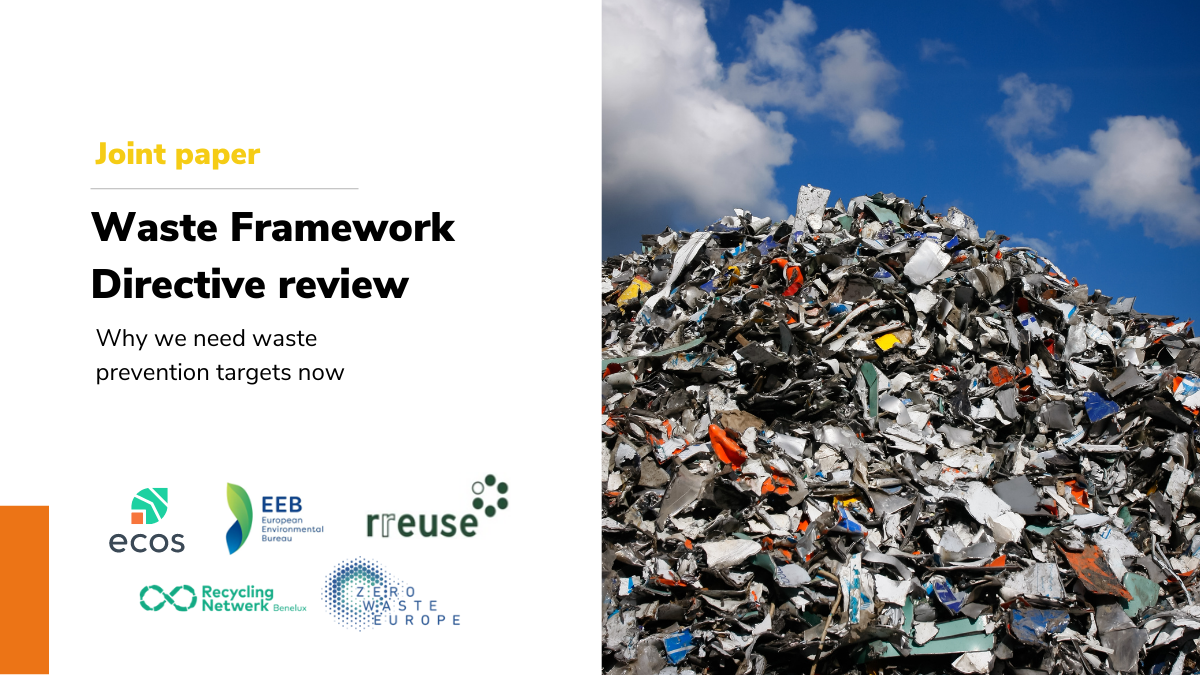New Joint Paper – Why we need waste prevention targets now
ECOS has joined other NGOs and representatives of waste treatment operators to create this joint paper, which shows the lack of effectiveness of existing waste prevention policies. We need European level quantitative waste prevention targets, as well as effective national measures. This joint position paper also highlights manufacturers’ role in reducing resource use and the size of the circular economy loop. Lastly, it offers some clarity on the differences between waste prevention and recycling, emphasising that recycling is lower in the European waste hierarchy than prevention.

The revision of the Waste Framework Directive (WFD) is key to shape and implement effective waste prevention plans, which, at the moment, are not properly achieving their objectives.
So far, EU member states’ waste prevention plans do not adequately implement quantitative targets. On one hand, the definition of waste prevention is confusing, as it is often associated with waste management measures – such as recycling – and not linked to reduction of primary resource consumption. On the other hand, many waste prevention measures focus on consumer initiatives, especially through awareness raising and campaigns. While these soft measures are useful, the priority should be on stronger and more binding measures. Moreover, targets should also focus on ensuring manufacturers are held accountable for placing an overwhelming flow of materials, goods, and substances on the market.
We are calling for reviewing the WFD by:
- Introducing overarching EU waste prevention targets, supported by specific waste prevention targets per key waste stream.
- Stressing the role of manufacturers in the upstream level and encouraging regulatory instruments to introduce mandatory reduction of resource use on manufacturers.
- When implementing Extended Producer Responsibility (EPR) schemes, upstream phases of the value chain beyond end-of-life must be addressed. This means introducing tools for prevention, repair, and reuse solutions, for funding the transition to circularity, as well as for revising the role of Producer Responsibility Organisations (PROs) within the EPR schemes.
- Minimum requirements should also apply if EPR schemes are extended to other waste streams to implement effective waste prevention policies in the often overlooked and unregulated waste streams, such as textiles.

 By
By 
